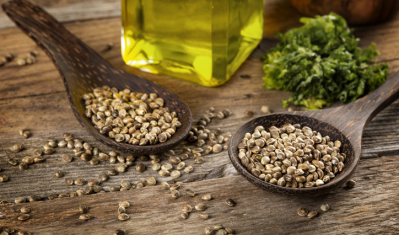Bouncing back: Lotte to double down on Indian market and healthier innovation to boost financials

Lotte recently announced its Q2FY2023 financial results, combinedly reporting 5.9% sales growth year-on-year to KRW3.87tn (US$2.92bn) across its consolidated businesses including food, beverages, retail, chemicals and more, but an overall 9% year-on-year decline in operating profits to KRW159bn (US$120.2mn).
This drop in profitability was however not apparent in the firm’s Wellfood business, a combination of Lotte Confectionery and Lotte Foods.
This arm comprises its confectionery, foods and global segments, covering popular mega-brands such as Xylitol gum and Pepero biscuits, and saw a 1.7% increase in sales to KRW1.04tn (US$786.3mn) and 7.8% increase in operating profits to KRW48.6bn (US$36.8mn).
“We saw an increase in the confectionery sector mainly from high-profit categories such as gum and chocolate as well as the launch of our new ZERO ice cream line,” newly-minted Lotte Wellfood CEO Paul Yi said in the firm’s financial results announcement.
“There has been some impact on operating profits in the foods business which covers items like fats and oils and processed meats due to the impacts of increased labour, utility and energy costs, as well as logistics and labour costs.
“But even so, we have seen much improved sales in the global business, especially from markets such as Kazakhstan and India, and we plan to further capitalise on this.”
According to Lotte Wellfood, plans are in motion to launch several healthier products in the second half of the year such as low-sugar ZERO ice creams, low-sodium hams, sausages made with chicken breast meat, beverages enriched with protein or other nutrients, plant-based milk and other organic and meat alternative products.
“The main business strategy [for this year] is to expand our health and wellness product lineup in H2 and continuously respond to these health and wellness trends throughout the rest of the year,” the firm stated.
“As of June 2023, these products make up 7.5% of our sales – we hope to increase this to between 16% to 25% by 2027.”
Lotte’s Global Business management also falls under Lotte Wellfood, and the firm has already outlined India as a key target market for it for the rest of 2023.
“India is emerging as a country with the world's largest population and improving productivity as well as consumption,” Yi said.
“It is expected to become the third largest economy by 2027 and has a forecasted annual average growth of around 10% based on continued growth of the domestic market.
“As such, Lotte Wellfood plans to continue to focus on increasing our market dominance and pursuing continued growth in India, [via brands that are already popular here] such as Choco Pie and World Cone ice cream.
“Based on the popularity of K-snacks and K-foods, there are many rapid and continuous globalisation opportunities, and we aim to achieve a 30% to 50% overseas sales business ratio by 2027 versus 23% as of 2022.”
Beverage qualms
Lotte’s beverage arm Chilsung has however had a tougher time of it in the second quarter of the year, with a 7.2% drop in operating profits to KRW59.2bn (US$44.8mn).
This was attributed to challenges in the overall beverage and liquor industry, from the weather to the economy.
“There has been lasting impact from the long rainy season and unpredictable weather conditions, as well as the ongoing burden of raw material costs (crucial to beverage production) such as sugar and fructose,” the firm stated.
“In the liquor sector consumption has overall slowed down due to inflationary concerns and the post-pandemic re-opening of the industry has also seen significant changes in consumer trends such as a decline in wine and craft beer consumption but an increase in highball consumption.
“Moving forward, we will respond to current market trends by launching health-oriented products such as caffeine-free cola and plant-based milk; as well as more RTD products such as zero sugar Lemongin, RTD Chumchurum soju-based highballs and whiskey-based highballs, as well as a new affordable whiskey for highball crafting as well as tonic waters.”









